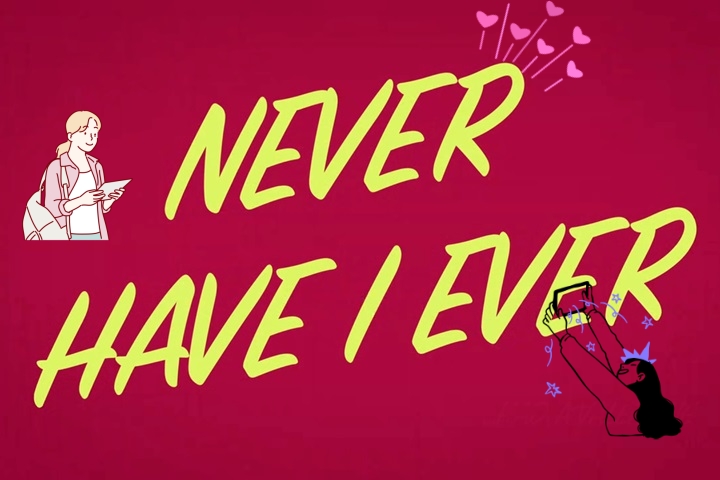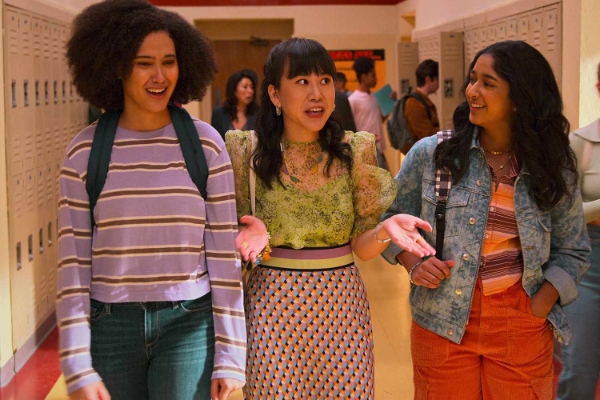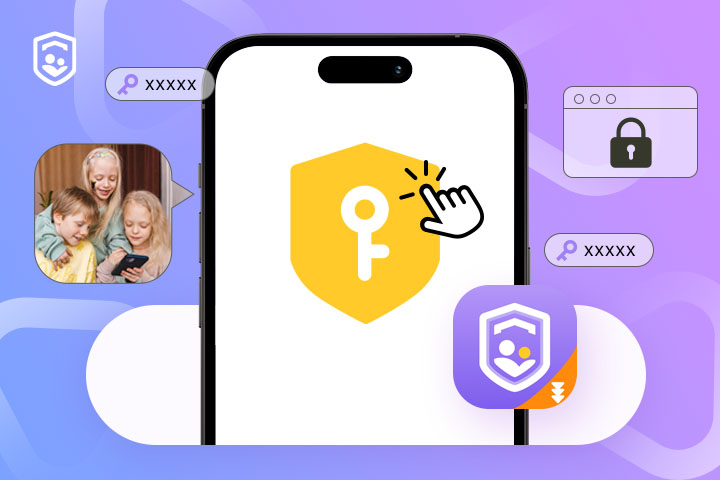Never Have I Ever is an original series by Netflix where the story follows Devi Vishwakumar’s teen life as a high schooler. It might be enlightening but challenging for its teen audience. Meanwhile, some parents are worried about the content that children are consuming, especially with series that sway closer to adult themes. Our Never Have I Ever parents guide will allow parents to know the appropriateness of the program for their children with an all-around view of the content and themes within the show.
The TV series does its part in dealing with issues such as grief, cultural identity, and relationships among teenagers. This coming-of-age comedy-drama borrows from creator Kaling’s real-life experiences as an Indian American teen, which weaves humor, heartache, and universally experienced teenage troubles into a story equally delightful. This guide will give you a clear sense of what to expect and how to discuss the show with your child.



Is Never Have I Ever appropriate for kids?
Due to the smart writing, accurate portrayal of teenage life, and diverse culture, the series has warranted great reviews and truly set itself apart from other recent TV offerings.
Never Have I Ever is rated TV-14 in the US, which is very diverse in its content anyway. That’s still inappropriate for kids under 14 years old without some guidance from a parental figure.
Most will get through the show just fine at 13 years old, but a few might be overwhelmed or left puzzling over particular themes. The dialogues and situations within this series embrace the high school setting. Most plots are light-hearted in their approach but also bring about subject matter that may be complex.
In short, whether Never Have I Ever is appropriate for your child depends on their emotional maturity and ability to understand the show’s themes. If your child is younger or more sensitive, you should consider watching the show together, allowing you to address any questions or concerns they may have as the story unfolds.
Keep the conversation going with your kids and get teen takeaways.
Overview of the Never Have I Ever (2020-2023)
Released in 2020, “Never Have I Ever” tells the coming-of-age story of Devi Vishwakumar. She is an Indian American teenager turning 15, residing in Sherman Oaks, Los Angeles. In both a comic and tragic way, Devi is seen struggling to find her place and also trying to stay true to the culture she is from.
After Devi had just gone through a horrific year after her father died suddenly, the story begins now. She wants nothing but to shake off her “nerd” reputation and be popular in her second year of high school. But the mix of grief, cultural identity, and pitching expectations for academic excellence leads to many problems and thinking. This TV series ends with the 4th season in 2023. We all know the story has an ending, but life will go on.
Key characters
- A strict and traditional mother, Nalini.
She has not passed over the fact that her husband left her, which often causes tension between her and Devi. In addition to Nalini being uncompromising in keeping Devi safe, the pressure of keeping true to their culture in America is also portrayed.
- Two friends on whom Devi is deeply trusted are Eleanor Wong and Fabiola Torres.
Eleanor longs to be an actress but has a lonely life with family issues. Fabiola loves robotics and is just beginning to explore questions about her sexual orientation. The three trudge through high school together amidst the trials, tribulations, and comical frustrations that high school life throws their way.



The series also features Ben Gross, a literary and academic rival to Devi, and Paxton Hall-Yoshida, the most popular boy in the school. Ben and Devi’s rivalry shapes into a very intricate friendship, which makes competition, jealousy, and mutual respect even stronger. Paxton represents Devi’s love interest. The story goes deep into his insecurities and problems.
Insights on the story plots
“Never Have I Ever” deeply explores questions of cultural identity in first-generation immigrants and the grief of Devi Vishwakumar. She struggles to come to grips with her Indian heritage and fit in with American society. This is brought out in her relationship with her mother and peers at school, as well as her inner struggle between cultural expectations and personal aspirations.
The family dynamics also influence Devi’s actions and decisions. This theme is anatomized through various emotional responses, from anger and denial to deep vulnerability. In such a portrayal, the show balances the humor and seriousness of dealing with grief in the life of a young person.
As Devi and her friends navigate the complexities of adolescence, the show captures every kind of pressure, from achieving academic success down to seeking social acceptance and a relationship with someone. Yet, in the thick of it all, holding onto self-discovery.
The show goes on to define the strength and support for Devi in her relationships with her friends Eleanor and Fabiola as they navigate the evolution of teenage friendships and the weight of peer pressure. Moreover, Devi’s relationships with her mother, Nalini, reflect the tension between traditional cultural values and all the facts of a completely different cultural setting. It relates generational trauma and healing from a loss carried together.
Parents’ guide to know Never Have I Ever
Having taken up the life of a cultural phenomenon, “Never Have I Ever” portrays a relatable depiction of high school life with a concoction of humor and drama. However, due to the available content, parental guidance is. Strictly speaking, parents should take a closer look at what they will be letting their kids in on. This Never Have I Ever parents guide goes into detail about this.
Age rating
Never Have I Ever is rated M18 on Netflix. It means the show is recommended for ages 18 and over. The rating stems from mature themes such as sex, grief, and cultural identity, in addition to a small bit of strong language and mild representations of alcohol use.
Content warnings
This section is something that parents should focus on whenever considering which movies or shows are appropriate for their children to watch.
- Sex & nudity: “Never Have I Ever” tackles teen relationships and sexuality in a lighthearted and non-graphic way. The show contains plenty of smooching and implied intimacy but without nudity scenes. It also deals with topics and talking, including virginity, dating, sexual attraction, and more.
- Language: It uses mild language typical of teens, tossing out “hell” and a “damn” here and there, but there are some cases of stronger language.
- Alcohol, drugs & smoking: There is teen drinking, but it is portrayed awkwardly and not glamorous at all. There is no drug use or smoking depicted.
- Any graphic scenes: The show is neither violent nor gory, with very few physical altercations that are not graphic. Although it does have some moments of very strong emotions, specifically about Devi’s grief, which can be difficult for younger children to understand.
Mature themes and positive messages
It tentatively broaches the serious themes of grief, cultural identity, mental health, and teenage sexuality with on-point humor and sensitivity. It has many messages of self-acceptance, friendship, and family. Devi’s journey nuances growth and resilience. The show is didactic, in a way, and reflects on both Indian culture and the immigrant experience – not on consumerism. It’s diverse in its casting and has very inclusive representation.
Why is Never Have I Ever rated TV-14?
Maybe you’re wondering why this show has a different age rating here. What we need to say is that different platforms/institutions and even countries or regions have different criteria for rating films/TV shows, which leads to inconsistent age ratings you’ll see.
The television programming is rated in the United States by the TV Parental Guidelines. TV-14 means that the show is inappropriate for children under 14 without parental guidance.
This Never Have I Ever series tackles mature subjects, like grief, cultural identity, and even teenage sex, making it inappropriate for small children and viewable only if guided by parents. After reading the above guide for parents, you’ve got an in-depth review of the themes and content of Never Have I Ever. Although it has no explicit material, it does have very heavy content. This rating warrants a moderate usage of language and alcohol, but neither is a premise for the plot.
Is TV-14 worse than Rated-R?
Rated-R restricts viewers under seventeen unless accompanied by an adult. Meanwhile, TV-14 merely restricts children under 14 without parental guidance. TV-14 is much less heavy than Rated-R, which will have much more graphical violence, much stronger language, and explicit sexual content. Parents are to consider these ratings and, in this case, the precise content of the work to make decisions.
Advice on guiding your teen to learn from Never Have I Ever
Now, we would like to provide ideas for discussions parents can have with their children about the positive messages and life lessons “Never Have I Ever” expressed and guide kids to learn from. The show offers opportunities for discussions that range from cultural identity and grief to self-discovery. Opening up and guiding teens through these complex issues can be a fitting occasion.
- Discuss life lessons: Talk about the challenges teens face, such as coping with peer pressure, performing well in school, or dealing with the ups and downs of their moods. Focus on how your child would handle a similar situation and what they think the main character could have done differently.
- Understanding relationships: One could talk about the show’s exposition of personality and its association with mental health or teenage friendships and love affairs. Discuss what constitutes a healthy relationship. Ask your teen what they think is important in a friendship or romantic partner and how they would handle conflict.



For further safety, FlashGet Kids offers a set of comprehensive features on parental control. It allows you to effectively manage kids’ online activities with screen time limits and the app blocker. The screen monitoring tool and notification tracker also let you know what they’re doing on social media apps. Moreover, the unique content filtering will alert you to any toxic and harmful keywords on your kid’s phone.
Consider using FlashGet Kids to support these conversations and keep a healthy online environment for your teen. You will also get diverse resources concerning parenting methods, guides to understanding popular movies and shows, and reviews of apps that your child might be interested in. Stay informed about new media trends and be proactive in caring about your teen’s daily activities and mental well-being.
FAQs
Is Never Have I Ever a family show?
The series addresses high school life and cultural identity issues, targeting teenagers and young adults. While it is okay for a family with older teens, the show includes mature themes, so it may not be appropriate for little kids.
Is Never Have I Ever OK for 13-year-olds?
The show is technically rated TV-14, allowing viewers over the age of 14. However, many parents do not restrict 13-year-olds from watching it as it is not inappropriately graphic.
Is there anything inappropriate in Never Have I Ever?
It contains mild sexual activity, moderate language, and mature themes like grief and cultural identity. While largely light-hearted, it may need some parental discretion to align with family values.

